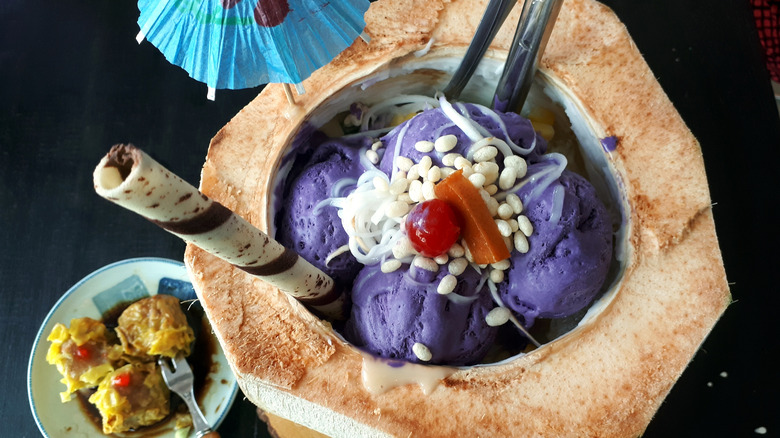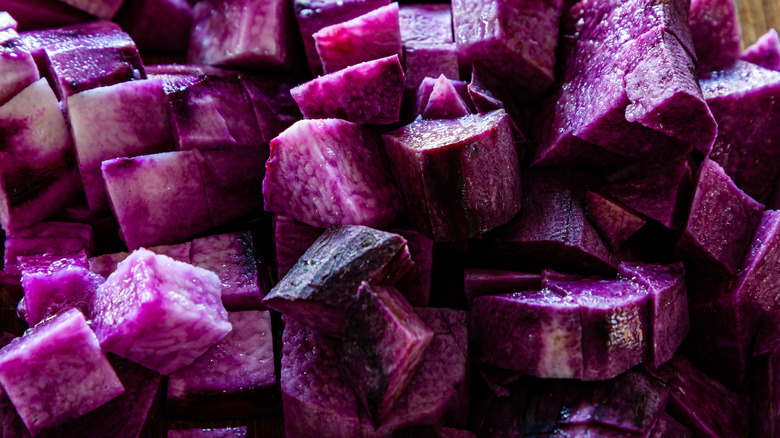Does Ube Have Nutritional Benefits?
Purple continues to be one of the trendiest food colors of the season, at least where pastries and sweets are concerned, and it's all thanks to the purple yam or ube. Of the ingredient, New York restauranteur Nicole Ponseca says, "Ube is not an exotic ingredient in the Philippines, but a common everyday ingredient. It's essentially the Philippines' equivalent of a sweet potato, but ours just have a saturated, technicolor, Prince-worthy shade of purple," per Mic.
While most ube products in the market today may contain some purple yam puree (we're looking at you, Trader Joe's Purple Yam Ice Cream, per Become Betty), it doesn't look like there is enough to move the nutrition count in any of the products it is used in, like waffle mix (via Become Betty) or mochi (via Become Betty).
So other than adding a pop of color and a burst of flavor, which The Takeout compares to vanilla, does ube or purple yam have any nutritional content at all?
The purple yam's color is a nutritional giveaway
The short answer is yes because even in the Philippines, where, as Ponseca points out, ube is an everyday thing, the flavors of items that are called "ube" are flavored with extract and ube halaya — which is made of the root, and additives like dairy, and sugar, making it a dessert in and of itself, per Catherine Zhang. The blogger writes, "Ube halaya, aka purple yam jam or ube jam, is a popular Filipino dessert made with ube, dairy, and sugar and is the most common way to prepare ube for desserts. This can be eaten as it is, but ube halaya is often used as a base to create ube cakes, cookies..."
But ube in and of itself is another story. Per SFGate, 3.5 ounces of ube provides 120 calories, no fat, 1 gram of protein, 27 grams of carbs, as well as 4 grams of fiber. Healthline goes on to say that ube packs 40% of the daily value needed for Vitamin C, and it is rich in anthocyanins which are anti-inflammatory, help reduce blood pressure, manage type 2 diabetes, and improve asthma symptoms.
So if you're looking to consume ube in its original form, as the root vegetable, the way nature intended, you'd be enjoying the nutty, sweet flavor of a nutritional powerhouse. But if you eat ube-flavored cakes and sweets, you're likely consuming empty calories of the ilk that Medical News Today warns us about.

